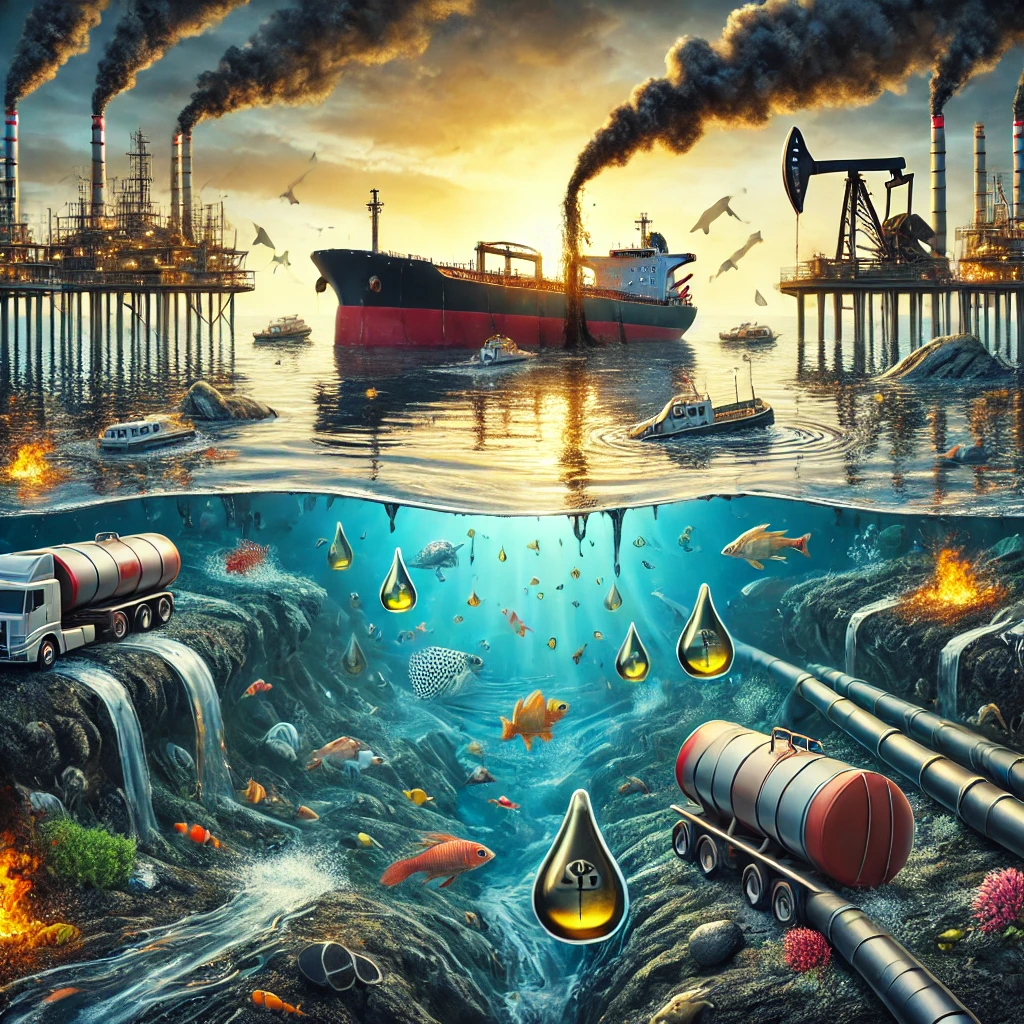What causes oil spills?
Article Source: Oil Spills Book on Google

Why you should care
Oil spills have devastating environmental and economic effects. They contaminate water, harm wildlife, and negatively impact industries like fishing and tourism. Beyond immediate damage, the effects of spills last for decades, affecting ecosystems and human health. Learning about the causes helps us understand how to prevent future spills and protect the environment.
Answering the question… What causes oil spills?
Oil spills are primarily caused by accidents during oil extraction, transportation, or storage. These accidents include ship collisions, pipeline leaks, and offshore drilling incidents. Human error and mechanical failures contribute significantly to these spills. The article identifies transportation as a major culprit, with tankers being responsible for nearly 37% of spills. Equipment failure, especially in pipelines, accounts for 29%.
How was the study done?
The study conducted an extensive review of oil spill incidents from multiple sources, including maritime records, government databases, and case studies like the Deepwater Horizon spill. It examined the frequency and scale of these incidents, identifying recurring patterns in causes and their long-term environmental consequences. Data was gathered from incidents occurring over several decades.
What was discovered?
- Transportation Accidents: Around 37% of all oil spills were found to be caused by transportation accidents. Tanker crashes and collisions are a leading cause of these events.
- Equipment and Pipeline Failures: Another 29% of spills were linked to mechanical failures in oil pipelines or during extraction processes. These failures often occur due to aging infrastructure or lack of maintenance.
- Human Error: An estimated 20% of oil spills are the result of human mistakes, from poor decision-making to lack of safety measures.
- Magnitude of Spills: On average, a significant spill can release more than 200,000 barrels of oil, with some, like the Deepwater Horizon, resulting in over 4.9 million barrels of oil being leaked into the ocean.
- Environmental and Economic Costs: The Deepwater Horizon spill alone cost approximately $61.6 billion in cleanup, compensation, and environmental restoration efforts.
- Marine Life and Ecosystem Damage: Studies show that oil spills can lead to long-lasting damage to marine life, with up to 85% of affected fish and bird species suffering drastic population declines post-spill. These effects can last for over a decade as ecosystems recover.
Why does it matter?
Understanding the root causes of oil spills allows industries to implement better preventive measures. Governments can use this information to create stricter regulations, ensuring safer oil transportation and extraction. By reducing these incidents, we can protect marine environments, wildlife, and coastal economies, securing a healthier planet for future generations.
